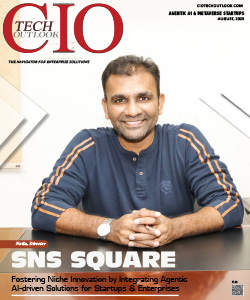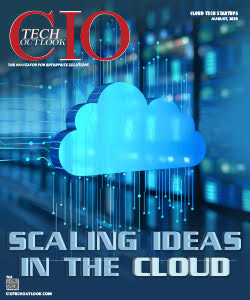Three ways Tech Companies Can Retain Top Talents
Abhrasnata Das | Monday, 24 October 2022, 04:15 IST
 Today, companies are having a tough time finding, hiring, and keeping the top technical talent they need to keep their businesses running and growing, states a survey conducted by Harvard. According to the report, only 13% of these employers said they are able to hire and keep the tech talent they need most.
Today, companies are having a tough time finding, hiring, and keeping the top technical talent they need to keep their businesses running and growing, states a survey conducted by Harvard. According to the report, only 13% of these employers said they are able to hire and keep the tech talent they need most.
As digital frameworks and operational models become foundations of modern businesses, the need for IT skills has never been stronger. There is a labor shortage despite the low 1.7% unemployment rate for IT jobs. Despite being positive for employees, this supply-demand imbalance forces all organizations to prioritize staff retention.
Unfortunately, the talent gap has led to a spike in turnover rates, making it difficult to retain staff. Among the fundamental factors at play are burnout, automation, and pay inflation. Larger businesses have more tools at their disposal to deal with problems, but the appeal of a bigger reward has worn off with time.
A fulfilling experience
Finding and retaining highly skilled people who can future-proof company innovation presents a number of difficulties. The previous several years have taught us that workplaces need to be both welcoming and motivating, if nothing else.
Managers must continually develop their capacity to conduct proactive contacts with their team in order to take the appropriate methods that assist achieving their goals.
Working experience is becoming increasingly valuable, especially in fast-paced technical situations. Businesses should focus on developing world-class workplace cultures that foster a sense of belonging, encourage success, and encourage individuals to be more creative. These must be the guiding principles of every company that wants to create a culture, draw in customers, and keep them around.
Companies could think about introducing rewarding and motivating initiatives including building employee wellness platforms, organizing neighborhood wellness events, increasing awareness of pressing issues, or supporting mental health charities.
They should include such actions into a larger aim, creating a culture where communities are encouraged to offer their own ideas, in order to ensure that diverse perspectives are represented and that employees have the opportunity to co-create these themes.
Being flexible
Finding and retaining highly skilled people who can future-proof company innovation presents a number of difficulties. The previous several years have taught us that workplaces need to be both welcoming and motivating, if nothing else.
Managers must continually develop their capacity to conduct proactive contacts with their team in order to take the appropriate methods that assist achieving their goals.
Working experience is becoming increasingly valuable, especially in fast-paced technical situations. Businesses should focus on developing world-class workplace cultures that foster a sense of belonging, encourage success, and encourage individuals to be more creative.
Although having engineers and developers on staff may be crucial, no organization can withstand constant turnover rates. Therefore, HR departments should place equal attention on the organization's talent.
Businesses also need to be aware of the behaviors that employees have adopted as a result of lockdowns and acknowledge that working primarily from an office is no longer the norm for many people.
Knowing the benefits of flexibility and enabling employees to work from home will not only provide them a much-appreciated sense of control over their daily life, but will also lead to a more productive workforce.
Since businesses still need to spend enough in their human resources, flexible policies can help organizations attract and retain critical individuals.
Values close, and integrity closer
Diversity, equality, and inclusion (DE&I) programmes and environmental, social, and governance (ESG) initiatives are no longer just "nice to haves"; rather, they are the very minimum.
Leaders in their fields understand the worth of their reputation and uphold their half of the agreement.
This requires clearly defining the company's overarching objective while putting more effort into developing a better social reputation to hold one another responsible for resolving significant issues like gender and pay parity and recruiting for diversity at all levels of seniority.
A lot of entrepreneurs utilise their own funds to provide deserving organisations and charities vital exposure. Some online businesses have already taken action in this area, one example being the provision of free ad space to charitable organisations. Others participate in important social awareness occasions like International Women's Day or Black History Month.
Despite the importance of context, companies must find the right balance between attractive, effective advertising and what is best for their organisation at a certain time.
The current climate debate has raised pressure on company executives to take significant environmental goals into account.
Executives in the IT sector may simply lead by example by, for example, committing to support the Climate Pledge, an endeavor to lessen carbon emissions and work toward net carbon neutrality by 2040. Additionally, ESG promises are becoming increasingly significant as a recruiting strategy as younger, more environmentally conscious people enter the workforce.
Future of work
There is no doubt that the majority of workplaces are changing significantly and quickly, which has an effect on how employees make decisions and what they see as meaningful employment.
The IT industry is the same. Although many companies have reported hiring freezes, slowdowns, or outright layoffs, there is still a significant demand for IT talents.
There has never been a more pressing need for HR departments to comprehend what keeps the best employees on staff.



.jpg)
